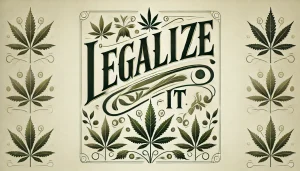Where Canada’s Weed Legalization Went Wrong

In March, a panel of experts in Canada quietly released the first authoritative evaluation of one of the biggest public policy changes in the country in recent memory: its legalization of cannabis. In 2018, Canada became the first G-7 nation to legalize the drug, launching a billion-dollar industry virtually overnight. (Many countries, such as the Netherlands, have decriminalized cannabis but not made it fully legal.)
As a condition of passing the law, Prime Minister Justin Trudeau’s Liberal government agreed that a panel of experts would conduct a formal review of the policy three years later. After a delay due to the COVID-19 pandemic, the government’s final report has arrived. The review concluded that Canada’s highly regulated but privatized cannabis market is deeply flawed. Legalization partially sacrificed public health to create a commercial market, experts found; even so, many cannabis companies are still struggling to turn a profit.
Ottawa’s panel of experts is not alone in its conclusions. As more jurisdictions around the world flirt with the idea of legalizing cannabis, many of them view Canada’s example through a critical lens.
Canada’s approach to marijuana legalization has yielded some accomplishments. Adults have largely moved their purchasing to a legal market, and criminal convictions for possession have dropped by 95 percent, the review found. “If one of the goals was to reduce the burden to the criminal justice system, it’s been a huge success,” said Akwasi Owusu-Bempah, a professor of sociology at the University of Toronto and co-author of Waiting to Inhale: Cannabis Legalization and the Fight for Racial Justice.
But pardons for those already convicted of cannabis-related crimes were an “afterthought,” Owusu-Bempah said. The government created a program for convicted Canadians to apply for amnesty, but Owusu-Bempah described the process as “byzantine.” As a result, to date, few pardons have been granted.
Read the full article at Foreign Policy





